Filter by
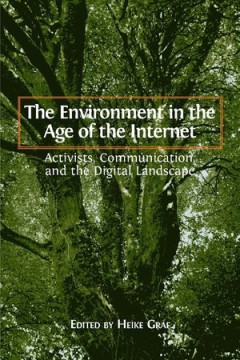
The environment in the age of the internet; activist, communication, and the …
How do we talk about the environment? Does this communication reveal and construct meaning? Is the environment expressed and foregrounded in the new landscape of digital media? The Environment in the Age of the Internet is an interdisciplinary collection that draws together research and answers from media and communication studies, social sciences, modern history, and folklore studies. Edited b…
- Edition
- 21
- ISBN/ISSN
- 9781783742455
- Collation
- xiv, 175 p. : ill
- Series Title
- -
- Call Number
- 302.23 HEI t

Decolonising blue spaces in the anthropocene: freshwater management in Aotear…
This open access book crosses disciplinary boundaries to connect theories of environmental justice with Indigenous people’s experiences of freshwater management and governance. It traces the history of one freshwater crisis – the degradation of Aotearoa New Zealand’s Waipā River– to the settler-colonial acts of ecological dispossession resulting in intergenerational injustices for Indi…
- Edition
- -
- ISBN/ISSN
- 9783030610715
- Collation
- xii, 494p. : ill
- Series Title
- Palgrave Studies in Natural Resource Management
- Call Number
- 363.700993 MEG d
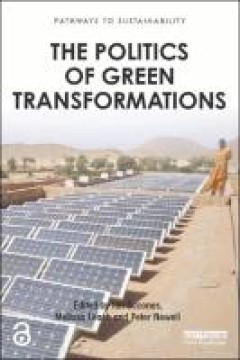
The politics of green transformations
Multiple ‘green transformations’ are required if humanity is to live sustainably on planet Earth. Recalling past transformations, this book examines what makes the current challenge different, and especially urgent. It examines how green transformations must take place in the context of the particular moments of capitalist development, and in relation to particular alliances. The role of th…
- Edition
- -
- ISBN/ISSN
- 9781315747378
- Collation
- xv, 238 p. : ill.
- Series Title
- -
- Call Number
- 320.58 SCO t
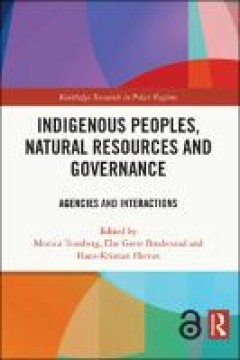
Indigenous peoples, natural resources and governance : agencies and interactions
This book offers multidisciplinary perspectives on the changing relationships between states, indigenous peoples and industries in the Arctic and beyond. It offers insights from Nordic countries, Canada, Australia, New Zealand and Russia to present different systems of resource governance and practices of managing industry-indigenous peoples’ relations in the mining industry, renewable resour…
- Edition
- -
- ISBN/ISSN
- 9781003131274
- Collation
- xiv, 216 p. : ill.
- Series Title
- -
- Call Number
- 333.2 TEN i
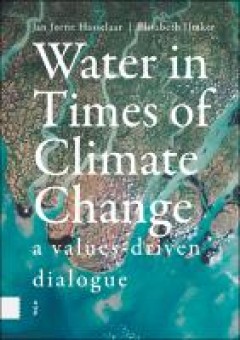
Water in times of climate change : a values-driven dialogue
This book on water and climate change goes beyond the usual and predictable analyses, by bringing religion and values into a discussion that is often dominated by technocratic solutions. The three case studies of Jakarta, Cape Town, and Amsterdam demonstrate the challenges of water management in urban areas and the role religion can play in addressing them. With representatives from science, po…
- Edition
- -
- ISBN/ISSN
- 9789048555383
- Collation
- 151 p. : ill.
- Series Title
- -
- Call Number
- 202.12 HAS w
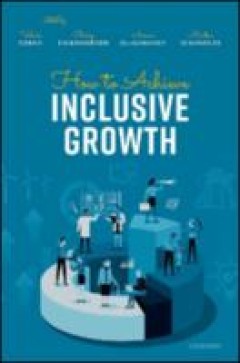
How to achieve inclusive growth
Rising inequality and widespread poverty, social unrest and polarization, gender and ethnic disparities, declining social mobility, economic fragility, unbalanced growth due to technology and globalization, and existential danger from climate change are urgent global concerns of our day. These issues are intertwined. They therefore require a holistic framework to examine their interplay and bri…
- Edition
- -
- ISBN/ISSN
- 9780192846938
- Collation
- xxiii, 831 p. : bnw, ill.
- Series Title
- -
- Call Number
- 338.927 CER h
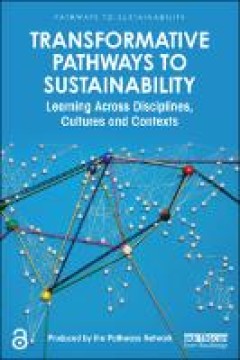
Transformative pathways to sustainability : learning across disciplines, cult…
Transformations to sustainability are increasingly the focus of research and policy discussions around the Sustainable Development Goals. However, the different roles played by transdisciplinary research in contributing to social transformations across diverse settings have been neglected in the literature. Transformative Pathways to Sustainability responds to this gap by presenting a set of co…
- Edition
- -
- ISBN/ISSN
- 9780429331930
- Collation
- xxviii, 237 p. : ill
- Series Title
- Pathways to Sustainability
- Call Number
- 338.927 THE t

Green economy in the transport sector : a case study of Limpopo Province, Sou…
This open access book is interdisciplinary and provides cross-sectoral and multi-dimensional exploration of sustainable development and transportation in South Africa. Drawing on work from different disciplines, the book contributes not only to academia but also seeks to inform urban and regional policy with the view of contributing to the national aspirations of South Africa as espoused in the…
- Edition
- -
- ISBN/ISSN
- 9783030861780
- Collation
- xiii, 119 p. : color, ill.
- Series Title
- -
- Call Number
- 388.096825 ODI g
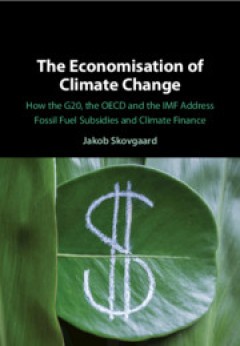
The economisation of climate change : how the G20, the OECD and the IMF addre…
The effort to address climate change cuts across a wide range of non-environmental actors and policy areas, including international economic institutions such as the Group of Twenty (G20), International Monetary Fund (IMF), and the Organisation for Economic Co-operation and Development (OECD). These institutions do not tend to address climate change so much as an environmental issue, but as an …
- Edition
- -
- ISBN/ISSN
- 9781108688048
- Collation
- xvii, 298 p. ; ill
- Series Title
- -
- Call Number
- 333.72 SKO t
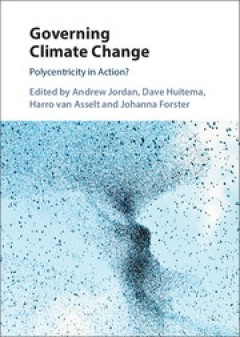
Governing climate change : polycentricity in action?
Climate change governance is in a state of enormous flux. New and more dynamic forms of governing are appearing around the international climate regime centred on the United Nations Framework Convention on Climate Change (UNFCCC). They appear to be emerging spontaneously from the bottom up, producing a more dispersed pattern of governing, which Nobel Laureate Elinor Ostrom famously described as…
- Edition
- -
- ISBN/ISSN
- 9781108284646
- Collation
- xv, 408 p. ; ill
- Series Title
- -
- Call Number
- 363.7387453 HUI g
 Computer Science, Information & General Works
Computer Science, Information & General Works  Philosophy & Psychology
Philosophy & Psychology  Religion
Religion  Social Sciences
Social Sciences  Language
Language  Pure Science
Pure Science  Applied Sciences
Applied Sciences  Art & Recreation
Art & Recreation  Literature
Literature  History & Geography
History & Geography